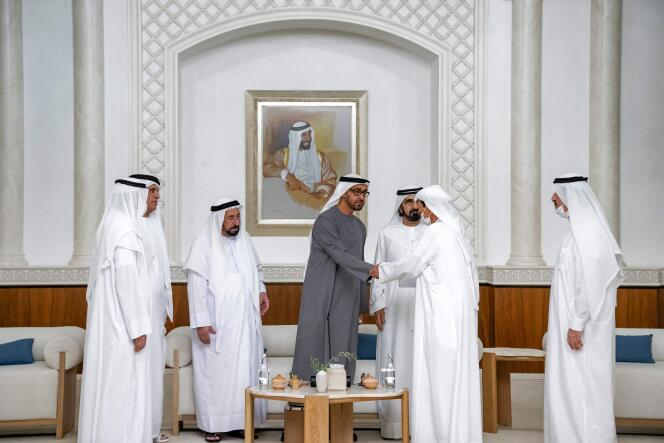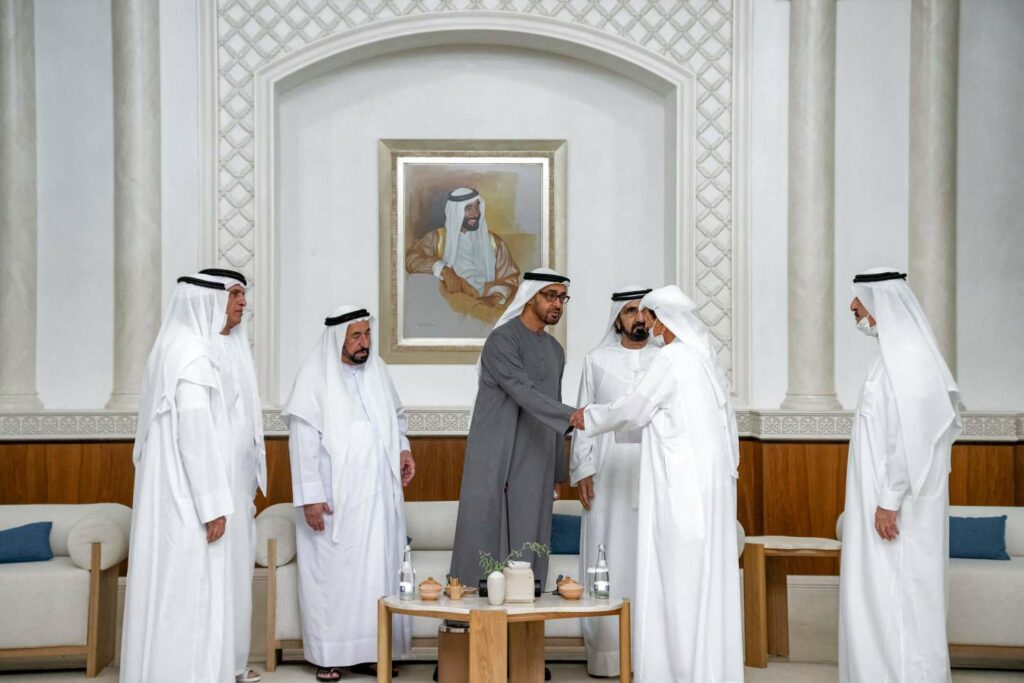
The de facto leader also became the titular leader. This is how we can sum up the political developments that took place at the end of the week in the United Arab Emirates (UAE). Following the death on Friday, May 13, at the age of 73, of Khalifa Ben Zayed Al-Nahyan, the president of this federation of Gulf principalities, whom a stroke had forced to retire from the political scene in 2014, his half-brother, Mohamed Ben Zayed Al-Nahyane, the strong man of the petromonarchy since that date, became president on Saturday May 14. “All this changes practically nothing, acknowledges Emirati political scientist Abdulkhaleq Abdullah. It has been almost ten years that Mohamed Bin Zayed acted as the president and was recognized as such, both inside the country and abroad. »
Foreign dignitaries immediately began to flock to Abu Dhabi, the capital of the UAE, which in the space of a decade has become one of the most powerful countries in the Middle East. Among them is Emmanuel Macron, who arrived in the Gulf on Sunday, his first trip outside Europe since his re-election. During his first term, the French president made the Emirates the pillar of his action in the Arab-Muslim world, a partnership highlighted by the mega-contract for 80 Rafales, signed in December 2021 in Abu Dhabi. Mr. Macron offered his condolences to the new Emirati head of state and congratulated him on his “election”.
In fact, it was a formality. The Federal Supreme Council, a body bringing together the monarchs of the seven emirates that make up the UAE, unanimously appointed the man nicknamed « MBZ » as president, ratifying a succession plan prepared a long time ago. Became Crown Prince of Abu Dhabi in 2004 on the death of his father, Zayed, the founder of the UAE, and as Khalifa became Emir of Abu Dhabi and President, Sheikh Mohamed was programmed to rise to supreme power.
A police state
The UAE Constitution does not reserve the presidency of the country to the monarch of the emirate-capital. Article 51 provides that the head of state is elected from among the members of the Supreme Council, which supposes that in theory, the emir of one of the six other city-states can claim the leadership of the country. But the imbalance of wealth is such between Abu Dhabi, whose soils are full of oil, and the other emirates that a form of centralization has imposed itself, to the detriment of the federal vocation of the UAE.
Dubai, the glamorous showcase of the country, the only emirate likely to overshadow Abu Dhabi, had to give up its ambitions at the time of the financial crash of 2008. In exchange, Abu Dhabi had saved the city from bankruptcy, by bailing out its real estate sector, over-indebted. The famous Burj Khalifa, an 828 m high steel spire, is the symbol of this guardianship. Pride of Mohamed Ben Rachid Al-Maktoum, the local emir, who wanted to call it « Dubai Tower », it was renamed after the Emir of Abu Dhabi when it was inaugurated in 2010.
You have 51.35% of this article left to read. The following is for subscribers only.

